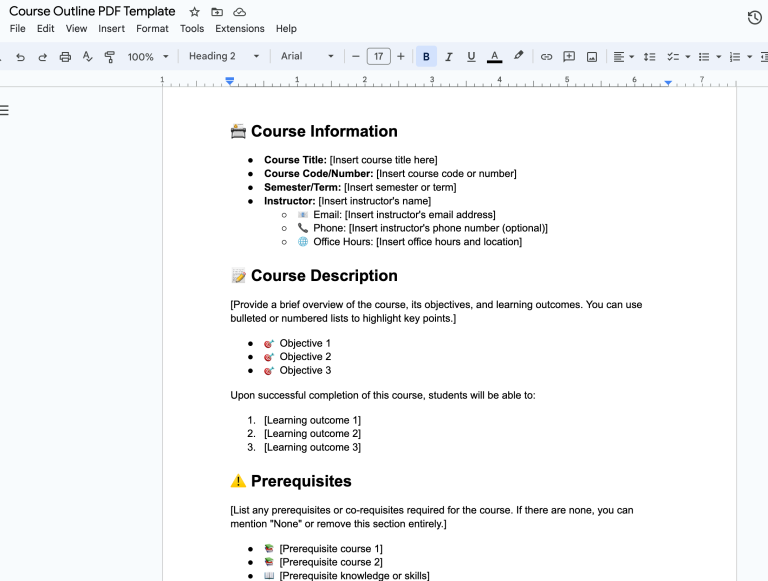50+ PDF Checklist for Online Course Launch

Sample Checklist
- Define Your Audience – Identify who your course is aimed at.
- Course Objectives – Outline what your course will achieve.
- Market Research – Investigate existing courses and demand.
- Course Content Outline – Draft a structure for your course modules.
- Content Creation Schedule – Plan when each piece of content will be developed.
- Develop Course Materials – Create videos, worksheets, and other learning materials.
- Choose a Course Platform – Select where your course will be hosted.
- Set Pricing Models – Decide on a pricing strategy for your course.
- Create a Sales Page – Build a compelling landing page.
- SEO Optimization – Ensure your course page is SEO friendly.
- Set Up Payment Processing – Integrate payment gateways.
- Legal Compliance – Check copyright, privacy policies, and terms of use.
- Accessibility Features – Ensure content is accessible to all users.
- Mobile Compatibility – Make sure your course works on mobile devices.
- Quality Assurance Testing – Test the course for bugs and user experience.
- Create a Marketing Plan – Outline strategies to promote your course.
- Email Marketing Setup – Prepare email lists and campaigns.
- Social Media Strategy – Plan your social media posts and interactions.
- Affiliate Program Setup – Create an affiliate system to boost sales.
- Beta Testing – Have a select group test your course before launch.
- Collect Feedback – Gather and analyze beta tester feedback.
- Incorporate Feedback – Make adjustments based on user input.
- Final Revisions – Make final changes before launch.
- Launch Strategy – Plan the specifics of your launch day.
- Pre-Launch Marketing – Build anticipation with teasers and previews.
- Launch Day Email – Notify your email list on launch day.
- Monitor Initial Feedback – Watch for early comments and issues.
- Customer Support Setup – Prepare to help users with problems.
- Post-Launch Review – Assess what went well and what didn’t.
- Ongoing Marketing – Keep promoting your course after launch.
- Update Content Regularly – Keep the course material current.
- Track Sales and Metrics – Monitor how your course is performing.
- Gather Testimonials – Collect positive reviews from students.
- Host Webinars – Offer live sessions to discuss course topics.
- Engage on Social Media – Regularly interact with followers.
- Offer Discounts – Provide course discounts to attract more students.
- Bundle Courses – Combine courses for special pricing.
- Referral Program – Encourage students to refer others.
- Content Recycling – Use course content for blogs, podcasts, etc.
- Upsell Opportunities – Offer advanced content or certifications.
- Membership Options – Create levels of membership for different content.
- Analytics Review – Regularly review course analytics for insights.
- Student Success Stories – Share success stories to inspire potential students.
- Continual Learning – Update your skills to improve your course.
- Feedback Surveys – Periodically survey your students for feedback.
- Community Building – Foster a community around your course topic.
- Partnerships and Collaborations – Collaborate with other educators.
- International Expansion – Consider translating your course.
- Continual SEO Review – Keep optimizing your course for search engines.
- Plan Your Next Course – Start thinking about your next online course.

